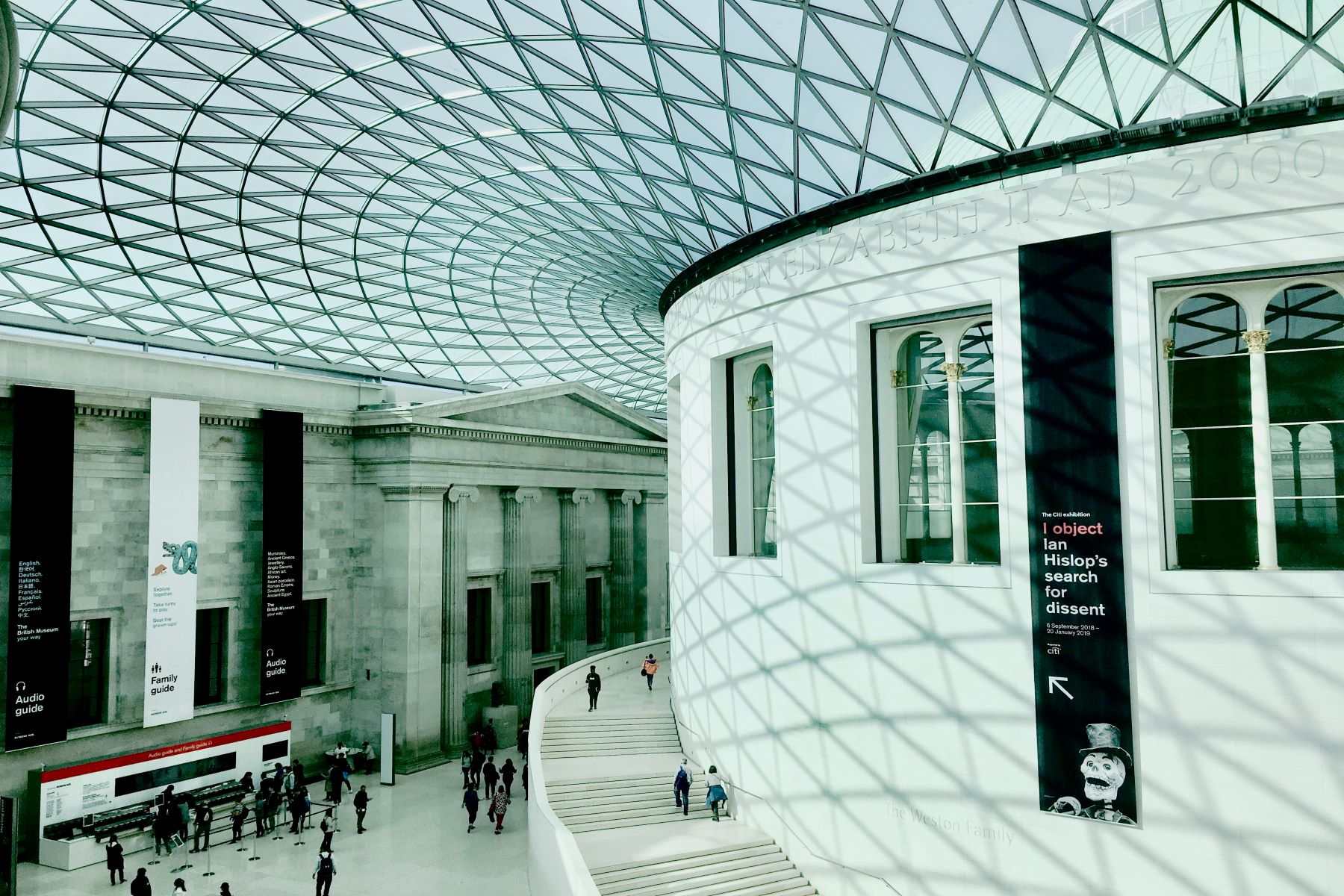
British Museum
Museums must play a role in climate emergency
With the climate crisis worsening, museum professionals are having to put environmental issues at the forefront of their decision-making, writes Veronica Ferrari.
With unprecedented high temperatures in the UK this week, the climate crisis has become central to daily news, political work, activism efforts and all aspects of our lives. And there has been no lack of discussion about the role of culture and the arts in addressing, explaining and representing the environmental crisis.
What has emerged is the need for everyone to be involved, from the top level directors of institutions to contributing artists and museum visitors, so that environmental concerns and sustainability are always kept in mind when producing and consuming arts and culture.
Cultural institutions can and should play an essential role, both as a resource to explain and represent the climate crisis and as a sustainable business model adapted to a greener future.
The way museums are funded matters too and our latest white paper – Funding cultural institutions in the climate crisis – is a starting point for those in relevant roles to ensure ethical practices are followed when it comes to sponsorships, loans, gifting and fundraising in relation to environmental and sustainability practices.
At InsightX, we provide specialist intelligence, due diligence and analysis to institutions in the arts and culture sector. We hope this guide will be a resource for development teams and partnership managers considering corporate sponsorships, fundraising teams evaluating the acceptance of major gifts and donations, and those responsible for assessing loans and donations of artefacts from private collectors.
The active role of cultural institutions in the climate crisis
The International Council of Museums (ICOM) have passed various resolutions related to sustainability in the last few years. They recommend that all museums “recognise that [they] have a role to play in shaping and creating a sustainable future…”
Museums have been called to actively engage in tackling climate change and prove their commitment to do so through their decision-making processes in all relevant areas – the running of their spaces, curatorial work, front-of-house practices, staff management, learning activities, and all financial practices.
The effects of controversial sponsorship
Based on Art Fund research, which surveyed UK museum and heritage directors in May 2022, these organisations currently rely on philanthropic donations for 34% of their income.
While it seems obvious that acceptance of these donations would follow ethical and sustainable principles, looking at the main corporate partners who have supported the country’s highest-profile museums and art institutions in the past few decades, the connection with controversial industries is evident. For years companies in the oil and gas industries, among others, have enjoyed their connection to the arts to boost their brands and get access to lobbying opportunities.
The increasingly evident connection between these companies and environmental damage has cast a shadow on some of the big names displayed as sponsors and continues making the headlines with negative coverage for the exhibitions.
This has led to calls for accountability from external stakeholders, such as activist groups and visitors, as well as from internal ones, with board members leaving their roles because of a mismatch with their personal values or contributors asking to withdraw their art from exhibitions.
However, it can’t be ignored that the Covid pandemic highlighted the financial fragility of the sector and while emergency funds helped in the short term, there is continuing pressure to secure funding. This makes securing sponsorship and donations even more essential and thus harder to reject funds, even when the sources might be considered unethical.
‘Funding cultural institutions in the climate crisis’ white paper
A 2018 survey by ArtsProfessional found that almost three-quarters of arts and culture institutions considered their reputations vulnerable to damage through association with sponsors or major donors.
In this white paper, we present our advice for ethical and sustainable sponsorships, gifting, loans, and fundraising. We believe that aligning partnership agreements and private donations with sustainable and ethical values is essential to safeguard museums’ role in society in the climate crisis.
For each area, we have outlined the due diligence processes to consider and the areas to investigate when evaluating an agreement, including:
● Sustainability claims
● Environmental records
● Legitimacy of carbon offsetting policies
● Adverse media coverage of the company concerning sustainability
● CEOs and board members’ climate stances
Intelligence and due diligence checks are essential tools to protect institutions from reputational damage by investigating potential partners and donors before entering into business with them.
As society continues ideating solutions for the current climate crisis, upholding the industry’s reputation has become essential to ensure organisations can continue their role of raising awareness and being seen as trustworthy businesses and organisations that represent a green future.
Veronica Ferrari is Head of Insight at InsightX.
![]() insightxintel.com/
insightxintel.com/
![]() @InsightXltd
@InsightXltd
Join the Discussion
You must be logged in to post a comment.